Seniors home alone: The future of growing old independently in Singapore
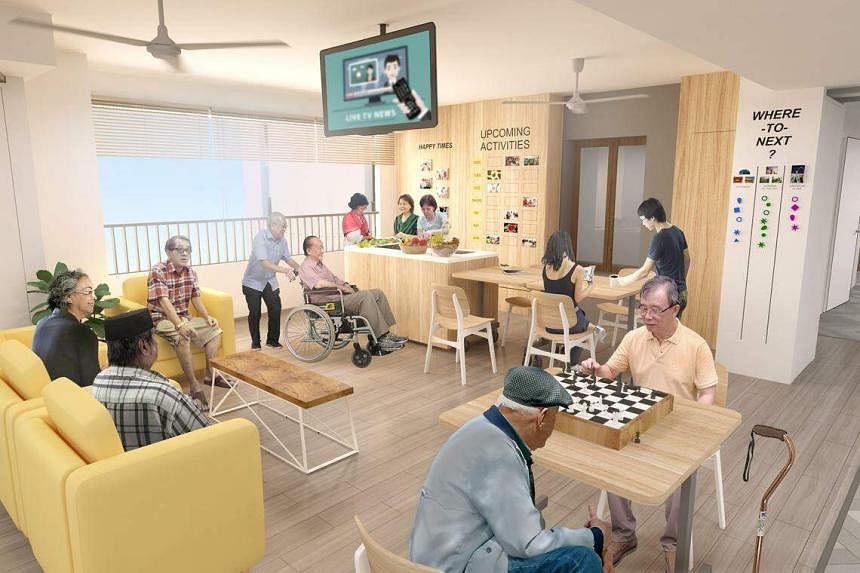
SINGAPORE – Senior citizens are looking to maintain their independence now and more will likely do so in the future.
Those with means will employ a full-time domestic helper to double as a 24-hour caregiver to help with basic needs like food, personal hygiene and assistance during emergencies, such as sfalls. This is assuming that they already have somewhere to live.
For those who do not, there will soon be new options for ageing-in-place for the elderly.
A new model of housing called Community Care Apartments (CCA), jointly developed by the Ministry of National Development, Ministry of Health (MOH) and Housing Board, was launched for sale in February 2021. The earliest completion date is set for 2024.
More recently, MOH and the Urban Redevelopment Authority (URA) closed the tender for a Government Land Sales site in Parry Avenue on Tuesday. The 60-year lease site was designated for a private assisted-living development. Four bids were received for this concept proposal stage of the tender process.
The CCA units will be 32 sq m, or about half the size of a squash court, and are priced from $55,000 with a 15-year lease or up to $120,000 for a 35-year lease. They are sold with features such as communal spaces on every floor and built-in furniture, and will also come with some care and support services for the owners.
Earlier this month, it was announced that a further 200 CCA units will be launched for sale in Bedok later this year, adding to the 169 units launched in Bukit Batok in February 2021 and 245 units launched in Queenstown in November 2022. The target completion date is 2024 for Bukit Batok and 2028 for Queenstown.
There are HDB flats of comparable size already available for sale.
In February, two-room Build-To-Order (BTO) flexi units – of around 36 sq m in size – with 99-year leases in mature towns like Farrer Park were launched, with prices starting at $185,000. In Tengah, which is not considered a mature town, similar-sized units were priced upwards of $97,000.
The Farrer Park BTO is estimated to be completed in the second quarter of 2028 and the Tengah BTO in the fourth quarter of 2027.
Architect Koh Kok Hian, deputy director (design development 1) at HDB, says CCAs are “a new flat typology” based on focus group discussions involving seniors, caregivers, healthcare professionals and service providers.
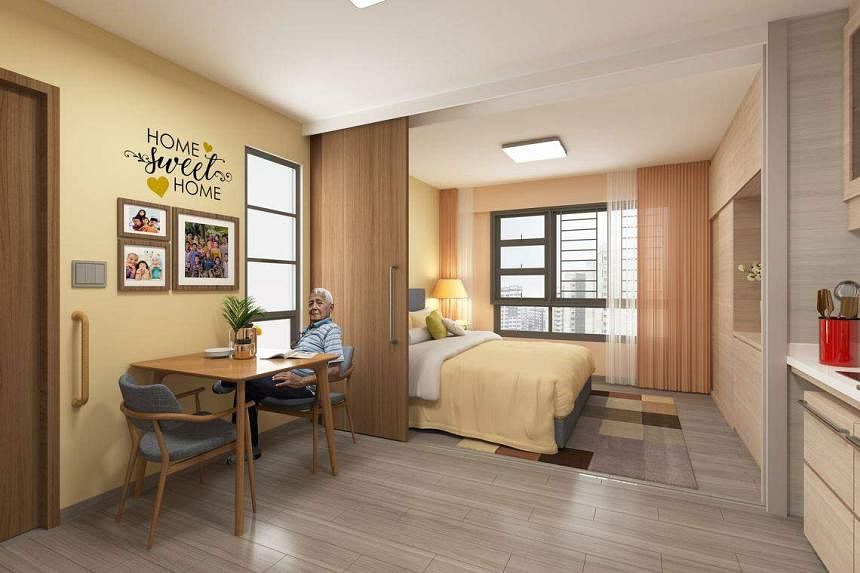
These were conducted in 2019 to seek feedback on desired design features and care services. Online surveys and exhibitions were also conducted to hear from more seniors.
“Building on the feedback we received, we were able to further refine the design concepts and flat features to better support the needs of seniors. For instance, sliding partitions were added to separate the living room and bedroom spaces as some raised concerns about the lack of privacy,” adds Mr Koh.
“To cater to personal preferences and different lifestyle needs, the flats are designed with an open layout, so seniors can customise the space to suit their needs. Within the units, there are grab bars, large wheelchair-accessible bathrooms with slip-resistant flooring, and wide wheelchair-friendly main doors with built-in benches beside the entrance.”
Each unit will have a kitchen and living-dining area, a bedroom, bathroom and service yard. Built-in fittings include a wardrobe, cabinets and a furnished kitchen (without a refrigerator).
The CCAs that have already been launched in Bukit Batok and Queenstown also have what Mr Koh refers to as “extensions of residents’ living rooms”.
These are the communal spaces on every floor, designed to “encourage community bonding”.
“Seniors can use these furnished spaces to mingle and bond with one another, share meals or participate in programmes specially curated by a community manager,” he adds.
Each flat is also fitted with two personal alert buttons that are manned 24 hours by an operator from Atlas Care, a wholly-owned subsidiary set up by MOH, who will respond to distress calls.
CCAs are a model of housing that comes close to retirement villages common in the West, where seniors who want to maintain their independence live in small communities with shared support services.
There were 706 applicants for the units in Bukit Batok and 383 applicants for the units in Queenstown.
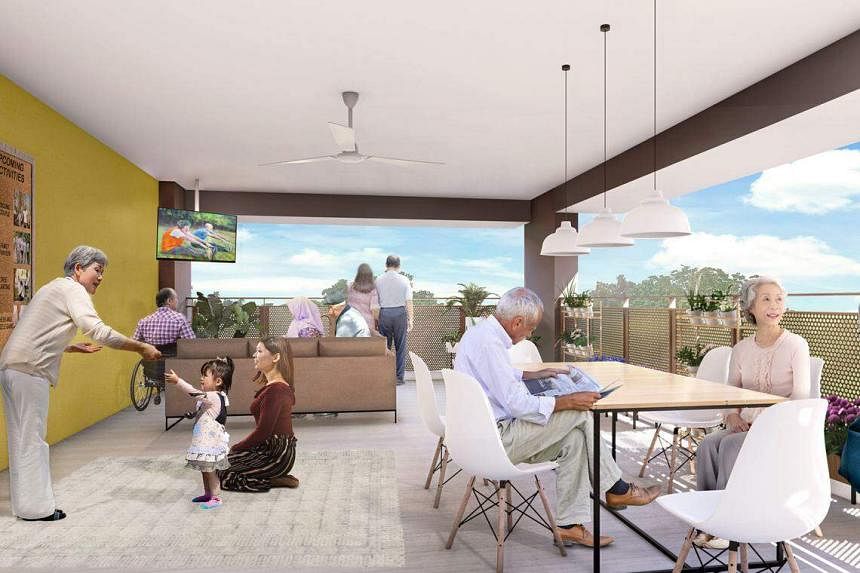
Former army regular Natvarlal Patel, 78, was keen on the CCAs, but was told they were oversubscribed by the time he made inquiries. The widower says he would have opted for a longer lease of above 20 years.
“If you calculate over 30 years, it is worth it,” he says.
He is currently living in co-living accommodation for seniors in a rental HDB flat in Simei.
“I like to cook,” he says, and where he lives, he is able to do so.
It costs around $2,800 a month. He shares a bedroom with another resident and has food and 24-hour on-site caregiving services. The residence is managed by Red Crowns Senior Living, which aims to offer seniors an alternative to nursing homes.
Red Crowns founder Joshua Goh, 43, says CCAs “will definitely encourage more elderly folk to age-in-place instead of ageing-in-institutions”.
Red Crowns manages 33 co-living rental homes for more than 120 residents, with their average age at 80.
One of the challenges to ageing-in-place in Singapore is the affordability of rental apartments. Mr Goh adds that landlords generally also prefer not to rent to the elderly.
He lauds the launch of CCAs and the “hardware” provided.
What remains to be seen is the “heartware” that is needed for successful ageing-in-place, he says, referring to the care ecosystem and pricing to ensure quality care for the masses.
With the launch of the Government Land Sales in Parry Avenue, there could be more players in the private sector offering assisted-living options in the future.
Based on the tender requirements for the site, the facility is likely to be available for rent only to residents over 65 years old.
An analysis of rents for private condominiums in the same District 19 vicinity by ERA Singapore reveals that the rent for a 40 sq m private residential unit is between $1,650 and $2,300 a month. This does not include the cost of care and medical support facilities.
As an indication of costs, according to the HDB website, the price of the basic service package for CCA residents is about $164 a month. This includes activities at the communal spaces, basic health checks and 24-hour emergency response.
Optional services will cost more: $20 an hour for housekeeping; $20 to $31 an hour for home personal care; $50 to $90 an hour for medical escort and transport; meal services at $5 to $7 a meal, and laundry service at $20 to $40 a load.
Mr Nicholas Mak, head of research and consultancy at ERA Singapore, says that for such sites to be financially feasible for a developer and a compelling proposition to the elderly here, software like medical and healthcare services provided by the developer “will be the key to its success”.
“This is not a property play. This is a healthcare play,” he adds.
What ageing-in-place means for Mr Wee Chin Choon, 101
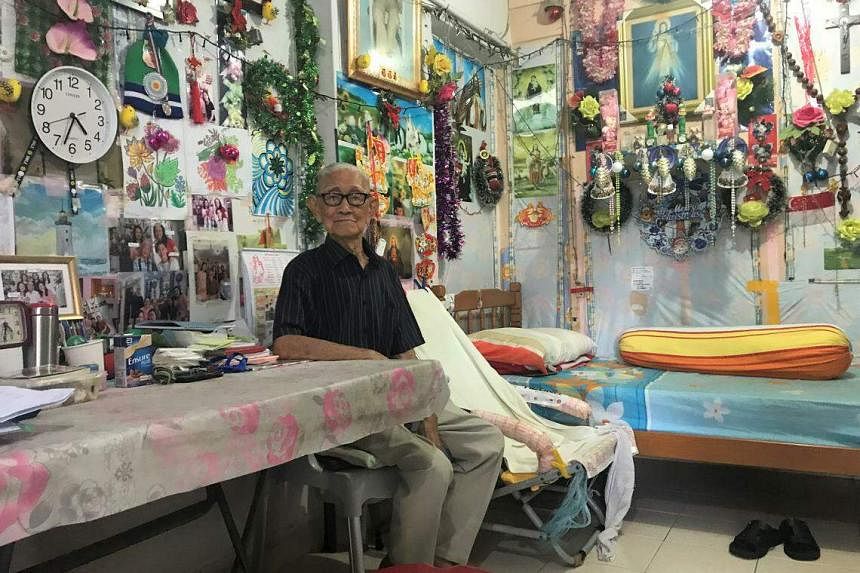
For the last 48 years, Mr Wee Chin Choon has been living in a two-room Housing Board rental flat in Queenstown. Now aged 101, he would like to continue to live in his home for as long as possible.
For his rental flat, he pays about $80 a month. He also receives a quarterly payout of $900 through the Government’s Silver Support Scheme.
Ageing-in-place for Mr Wee, who used to work as a foreman in a bus company, has taken on a routine of going to the St Andrew’s Senior Care centre – which provides transport – five times a week.
On weekends, he may get visits from social service volunteers or church groups. He has also made friends with neighbours. But, mostly, he values his independence and goes out for walks and trips into town on his own when he feels up to it.
Mr Wee was widowed 22 years ago, and his only daughter died when she was 70.
He has relatives who have tried persuading him to move to an eldercare facility, but he does not want to.
“In an old folks’ home, all you do is sleep all day,” he says in a combination of English and Mandarin.
He says he is adept at looking after himself.
“I bathe, wash and iron my clothes myself,” he says.
His meals are provided free, twice a day, by Dorcas Home Care Service, which is part of Presbyterian Community Services. He also gets help with housework on a weekly basis from Lions Befrienders.
While Mr Wee is happy living on his own, he is afraid of falling. It has happened, though he cannot remember precisely when. Then, he was lucky because a neighbour who happened to check in on him called for help.
What would make him feel better is knowing that help is always at hand.
On the top of his wish list: “If I can, I would like someone to take care of me here.”
What ageing-in-place means for Madam Anne Yip, 86
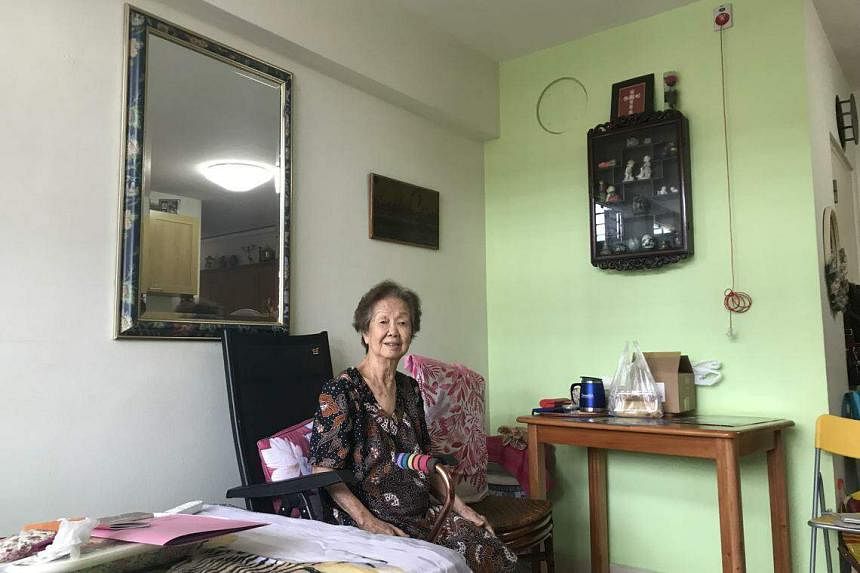
About nine years ago, Madam Anne Yip decided to sell her five-room HDB flat in Pasir Ris and get a smaller two-room one in Tampines. The 86-year-old former airline services executive and kindergarten teacher remembers how much she paid for it then – $82,000.
The flat is one of 208 units in a block that were sold with 30-year leases and comes with 24-hour emergency alert systems connected to a pull cord.
But Madam Yip has never used it, even when she fell in the kitchen two years ago. Instead, a neighbour who had dropped in for a visit found her on the floor and got help.
A more serious fall about a year ago saw her admitted to a hospital.
“I was so unhappy there,” she recalls.
When she went home, she decided to employ a live-in helper, which she pays for together with one of her sons, who visits her weekly.
Madam Yip bore six children. One died from cancer and two live overseas. Of the remaining three who live in Singapore, one is battling cancer. The son who visits her weekly has a large family of his own, with eight children.
Her husband died 20 years ago.
She says she does not want to live with her children, adding in English: “I don’t want to assume anything. Their kids also need room of their own.”
Madam Yip may be fortunate to have the help of a live-in helper, but this has come with its set of problems. She recently employed a new helper because she says the first one “was very fierce”.
“I never had a helper before,” she says.
The Evergreen Circle Active Ageing Centre, which is part of Presbyterian Community Services, is located within her block and she used to drop in for activities there, until her recent fall. She still cooks at home, but also frequents the eateries near her block.
One drawback about going downstairs is that she does not like the non-resident crowds who gather at the void deck to gamble. She also feels that the void deck could do with some upgrading.
But, mostly, she says: “I am quite content. I live within my means, with what my late husband left me.”
She lets on that she is occasionally derided, especially by taxi drivers, when she tells them how much she paid for her flat.
“They say I am just paying rent,” she says with a chuckle.
Join ST's Telegram channel and get the latest breaking news delivered to you.



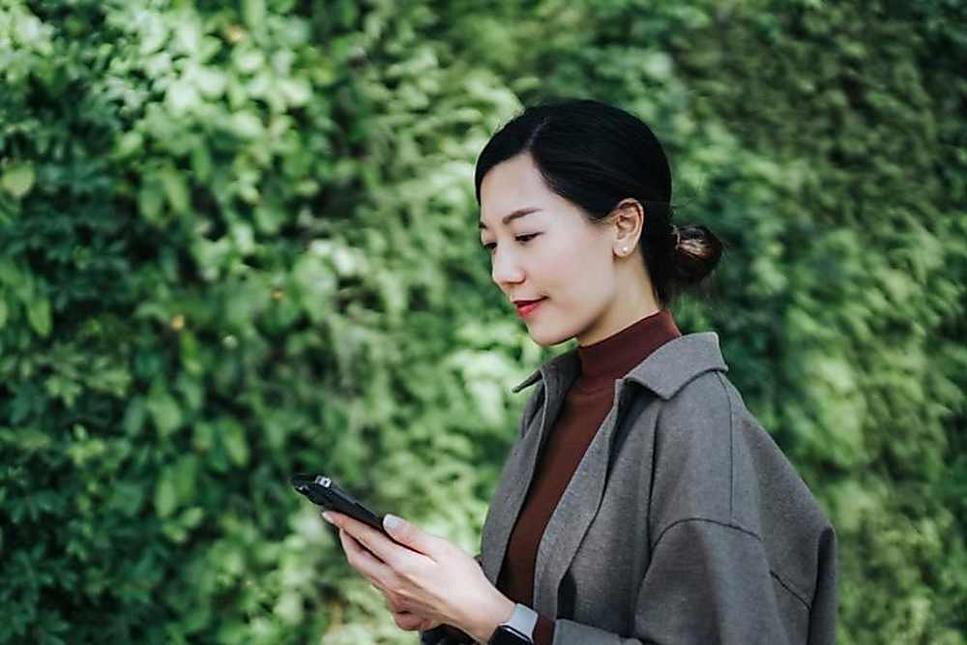





No comments:
Post a Comment